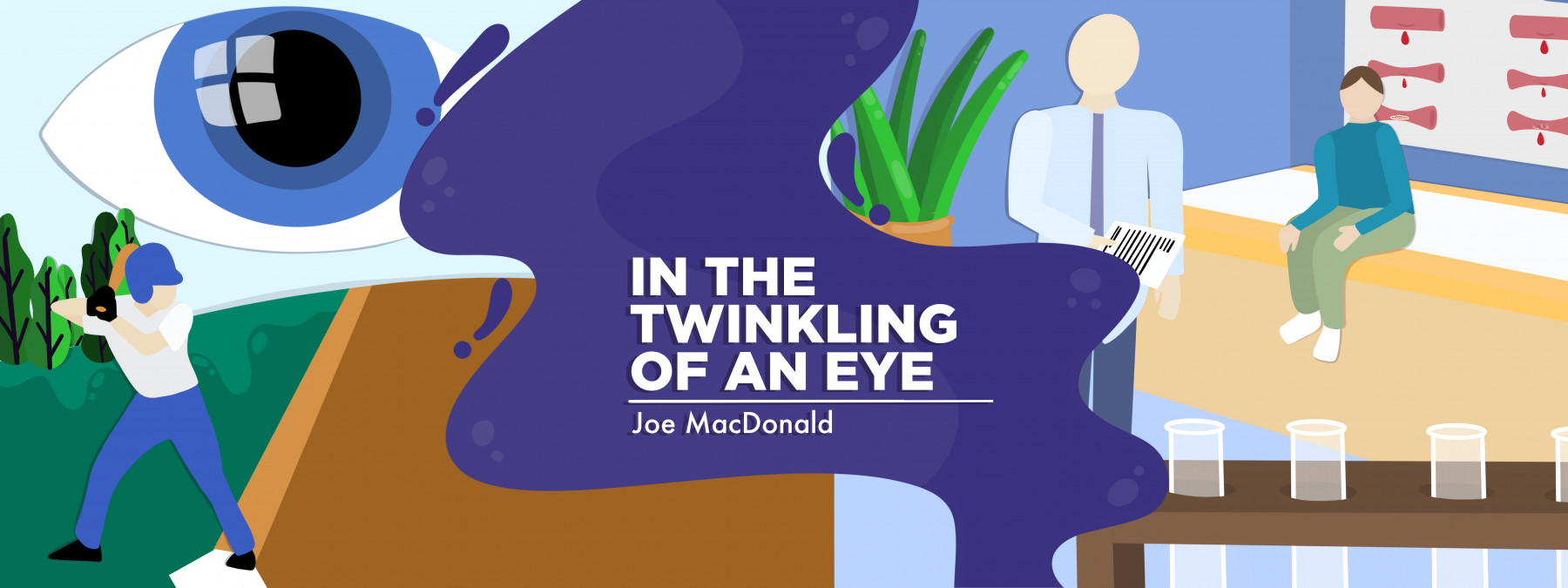A bleed reminds me of my son’s hemophilia management skills
A recent bleeding episode tested both of us, but in different ways
Written by |

A few weeks ago, my oldest son, Julian, called me from the Blue Ridge Mountains in North Carolina and informed me that he had throbbing pain in one of his teeth. He immediately went to a nearby dentist and got news he didn’t want to hear: The tooth required immediate extraction. Failure to treat the problem quickly could lead to more significant issues, such as an infection along the gum line, possibly injuring other teeth.
As Julian shared his story, my stomach sank. I frantically thought, “There’s nothing I can do to help him. If I were a good father, I would find a way to provide relief.” I calmed my thoughts and continued to listen.
“Dad, I scheduled an appointment to have my tooth pulled. Please don’t worry. I called the hemophilia treatment center in New Mexico, and the hematologist, Dr. Quintana, gave explicit instructions to the dentist. We reviewed how much factor VIII I should take after the extraction. I’ve got this handled.”
I confirmed that he’d done everything he needed to do and felt glad that he had a plan of attack. While I praised him for his diligence in doing the next right thing, I still felt a little off. Surely I could somehow make a difference if I were there with him.
I knew my thoughts proved a little absurd, but as a caregiver and father — two substantial roles to play in a person’s life — I couldn’t help but feel like my energy would improve the situation.
Letting my son manage the situation
Julian called me back the morning after the dentist had extracted his tooth. “Dad, I’m sorry for calling you so early, but my gums will not stop bleeding. I just used my last dose of factor VIII, and I don’t know what else to do.” He then replayed the events of the last few hours. He told me that when he woke up, his pillow had large amounts of blood on it from a failed clot around the tooth extraction.
I felt a hint of fear in his voice as he told me he’d gone to the nearest emergency room. They temporarily fixed him, but he needed his medicine. However, the ER couldn’t order factor for him. They transferred his records to a hospital about an hour and a half from his lodging.
Finally, after four hours, someone agreed to drive Julian to the hospital so the staff there could order the correct medicine. Again, Julian did an excellent job of managing the situation. He contacted the hemophilia treatment center in New Mexico and allowed the doctor in Albuquerque to speak directly to his attending physician in North Carolina. The attending doctor ordered the medical product, and within five minutes of the infusion, the bleeding stopped.
Throughout the ordeal, Julian called to give my wife, Cazandra, and me updates on his care. Each time the phone rang, my heart skipped a beat. Before I picked up, I murmured a small prayer for my son. My anxiety went through the roof as I answered and heard his voice.
Finally, Julian called and said, “Everything seemed to work. There is no more bleeding in my mouth. I will continue to be very careful and take precautions to prevent any more breakthrough bleeding in my gums. I have popsicles, ice cream, and cold presses to help preserve the clot.”
I smiled and once again acknowledged the fantastic way he’d handled complications from his bleeding disorder. My heart pumped so loudly inside my chest that I could hardly speak. I couldn’t see him or take care of his medical requirements, but I recognized that he was managing hemophilia on his own. He asked the right questions, called the best people, and followed the correct protocol.
I reflected on the situation and realized one primary truth: My son had handled his emergency in the best way possible. I like to think that his mother and I taught him how to move in the world and handle his encounters with the bleeding disorder beast thoughtfully and courageously.
Although Julian didn’t need me during his terrifying adventure, he did turn to me for support. He had no idea how that helped the caregiver within me. I realized I needed to feel that I still had something to give him. The father in me smiled as I understood he’d reached out to me for comfort. He knew how to fix the problem, but wanted his dad and mom for support.
Note: Hemophilia News Today is strictly a news and information website about the disease. It does not provide medical advice, diagnosis, or treatment. This content is not intended to be a substitute for professional medical advice, diagnosis, or treatment. Always seek the advice of your physician or another qualified health provider with any questions you may have regarding a medical condition. Never disregard professional medical advice or delay in seeking it because of something you have read on this website. The opinions expressed in this column are not those of Hemophilia News Today or its parent company, Bionews, and are intended to spark discussion about issues pertaining to hemophilia.



Leave a comment
Fill in the required fields to post. Your email address will not be published.